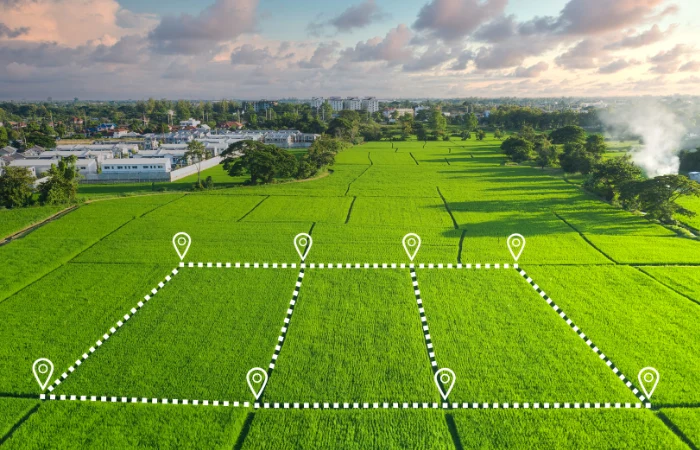
Finding the ideal piece of land for sale in Colorado can be a rewarding yet challenging experience. Whether you’re looking for agricultural land, residential plots, or a beautiful spot for recreational use, Colorado offers a wide variety of options.
In this guide, we’ll explore the different types of land available in the state and provide a step-by-step approach to help you navigate the process. From defining your requirements to conducting thorough inspections, these tips will ensure you find the ideal land that meets your needs and aligns with your goals.
Different Types of Land in Colorado
There are various types of land in Colorado, each serving different purposes and offering unique opportunities for development, conservation, and recreation. Here is a list of the main types of land found in Colorado:
- Agricultural Land
- Residential Land
- Commercial Land
- Industrial Land
- Recreational Land
- Public Land
- Conservation Land
- Forest Land
- Wetlands
- Ranch Land
Steps to Discover Land for Sale in Colorado
Discovering land for sale in Colorado requires careful planning and research. By following a structured approach, you can find the ideal property that meets your specific needs. Here are seven steps to guide you through the process:
1. Define Your Requirements
Determine the purpose of your land purchase, whether it’s for residential, agricultural, recreational, or investment purposes. Consider factors such as location, size, budget, and desired features like proximity to amenities, scenic views, or water sources. Clearly defining your requirements helps narrow down your search, making it easier to find land that aligns with your goals and ensures that you focus on properties that meet your distinct needs.
2. Research Online Listings
Utilize online real estate platforms like Zillow, Realtor.com, and LandWatch to explore available land listings in Colorado. Use filters to specify your criteria, such as location, price range, and land size. These platforms offer detailed information, including property descriptions, photos, and sometimes virtual tours. Regularly checking these listings helps you stay updated on new properties and allows you to compare different options, providing a comprehensive view of what’s available in the market.
3. Work with a Local Real Estate Agent
Partner with a local real estate agent who specializes in land sales in Colorado. An experienced agent can supply invaluable insights into the local market, identify properties that may not be listed online, and assist with negotiations. They can also guide you through the legal and procedural aspects of purchasing land, such as zoning laws, permits, and land use regulations. Working with an agent ensures that you have professional support throughout the buying process, making it smoother and more efficient.
4. Visit Potential Properties
Schedule visits to the shortlisted properties to evaluate their suitability in person. Pay attention to the land’s topography, access to utilities, and surrounding environment. On-site visits allow you to verify the accuracy of online listings, understand the property’s potential, and visualize how it aligns with your plans. Visiting properties helps you get a realistic sense of the land’s features and any potential issues, ensuring that you make an informed decision.
5. Check Zoning and Land Use Regulations
Investigate the zoning and land use regulations for the properties you are interested in. Local zoning laws dictate how the land can be used, affecting your plans. Contact the local planning department or use online resources to understand any restrictions or permits required for your intended use of the land. Knowing the zoning regulations helps you avoid legal complications and ensures that the land can be used for your intended purpose.
6. Assess the Land’s Accessibility and Infrastructure
Evaluate the accessibility and infrastructure of the land, including road access, availability of water, electricity, and other essential utilities. Consider the cost and feasibility of connecting these services if they are not already available. Proper infrastructure is crucial for the land’s usability and potential for future development. Ensuring that the land is accessible and has the necessary infrastructure in place helps you avoid unexpected costs and delays in your plans.
7. Conduct a Thorough Land Inspection
Hire professionals to conduct a thorough land inspection, including soil testing, environmental assessments, and surveys. These inspections can reveal potential issues such as soil instability, contamination, or boundary disputes. Understanding these factors beforehand helps you make an informed decision and avoid costly problems in the future. Conducting a comprehensive land inspection ensures that you are fully aware of the property’s situation and any potential risks, giving you peace of mind before making a purchase.
Frequently Asked Questions

What factors should I consider when choosing the location for purchasing land for sale in Colorado?
When choosing a location for purchasing land for sale in Colorado, consider factors such as climate, proximity to amenities, the local real estate market trends, accessibility, and the type of land use regulations in the area. Additionally, think about the surrounding environment, scenic views, and community characteristics to ensure the location aligns with your personal or investment goals.
How can I finance the purchase of land?
Financing land can be done through various means, including traditional bank loans, land loans, seller financing, and personal savings. It’s important to shop around for the best financing options and understand the terms and conditions associated with each type.
What are the benefits of purchasing agricultural land in Colorado?
Purchasing agricultural land in Colorado offers several benefits, including potential income from farming or ranching, tax advantages, and the opportunity to contribute to local food production. Agricultural land can also appreciate over time and provide a stable investment. Additionally, owning agricultural land allows you to engage in sustainable practices and contribute to environmental conservation.
How can I ensure the land I purchase is free of legal disputes?
To ensure the land you purchase is free of legal disputes, conduct a thorough title search and obtain title insurance. This process helps verify the property’s ownership history and uncover any existing liens, easements, or boundary disputes. Additionally, consulting with a real estate attorney can provide further legal assurance and help address any potential issues before finalizing the purchase.
Conclusion
Finding the right land for sale in Colorado involves careful planning, research, and due diligence. By understanding the types of land available and following a structured approach, you can discover a property that aligns with your needs and goals. From defining your requirements to conducting thorough inspections, these tips will guide you through the process and ensure a successful purchase.
Contact us at 3D Real Estate today to help you navigate the land-buying process and find the ideal property that suits your needs and ambitions. Explore our listings and get started on your journey to land ownership in Colorado!




